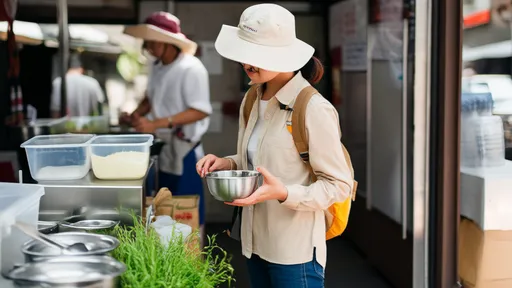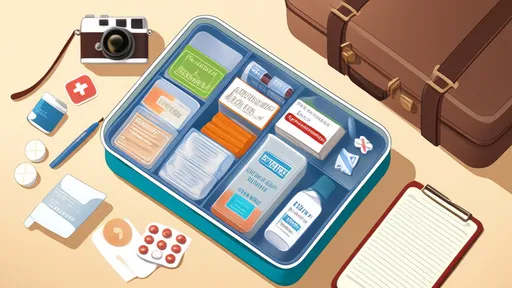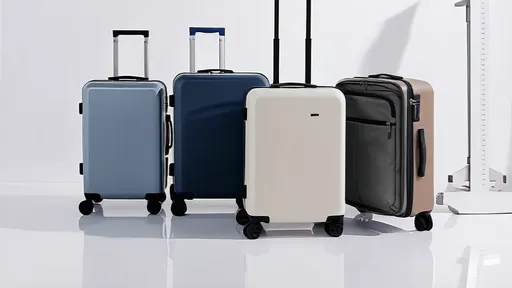Traveling opens up a world of flavors, aromas, and culinary adventures, but it also comes with the risk of foodborne illnesses that can turn a dream vacation into a nightmare. Whether you're navigating bustling street markets in Southeast Asia or dining in a quaint European café, understanding how to protect yourself from food-related issues is essential. The excitement of trying new dishes should never be overshadowed by the fear of getting sick, and with a few mindful practices, you can savor every bite with confidence.
One of the most critical aspects of avoiding food problems while traveling is researching your destination's food culture and common hygiene standards beforehand. Not all regions adhere to the same safety protocols, and what might be safe for locals could pose a risk to visitors with different immune systems. Look into reputable travel forums, government health advisories, or guidebooks that highlight areas known for food safety concerns. For instance, in some countries, tap water is not potable, and this extends to ice cubes, washed salads, or even brushed teeth—details that are easy to overlook but crucial for prevention.
When you arrive at your destination, observe the dining establishments with a keen eye. Busy spots with high turnover often indicate fresher food, as ingredients are constantly replenished rather than sitting out for extended periods. Street food can be a highlight of cultural immersion, but prioritize vendors who cook food to order right in front of you, ensuring it hasn't been languishing in the heat. Avoid buffets or pre-cooked dishes that have been exposed to the environment for too long, as bacteria thrive in temperatures between 40°F and 140°F—the infamous danger zone.
Another key strategy is to stick to foods that are thoroughly cooked and served piping hot. Heat kills most pathogens, so opt for steaming soups, grilled meats, or stir-fried vegetables straight from the wok. Be cautious with raw or undercooked items like sushi, ceviche, or rare meats, unless you're in a reputable establishment with high hygiene standards. Similarly, peel fruits yourself to avoid contamination from unclean knives or hands, and steer clear of unpasteurized dairy products, which can harbor harmful bacteria.
Hydration is vital during travels, but contaminated water is a leading cause of illness. Always drink bottled or purified water, and ensure the seal is intact before consuming. In places where safe water is scarce, consider carrying a portable water filter or purification tablets. Remember that ice cubes, fountain drinks, and even brushing your teeth with tap water can introduce risks. Opt for hot beverages like tea or coffee, as the boiling process makes them safer, and be wary of fresh juices that may have been diluted with unsafe water.
Personal hygiene plays an equally important role in preventing food-related issues. Wash your hands frequently with soap and water, especially before eating or handling food. If washing isn't possible, use an alcohol-based hand sanitizer with at least 60% alcohol. Avoid touching your face, mouth, or eyes with unwashed hands, as this can transfer pathogens from surfaces to your system. Additionally, carry wet wipes or sanitizing sprays to clean utensils, tabletops, or packaging when dining in questionable environments.
Listening to your body is another layer of defense. If something tastes or smells off, trust your instincts and avoid consuming it. Many travelers ignore subtle signs due to excitement or politeness, but it's better to waste a meal than spend days ill. Pay attention to how your body reacts to new foods—introduce them gradually rather than overwhelming your system with unfamiliar spices or ingredients all at once. This is especially important for those with sensitive stomachs or dietary restrictions.
In cases where you do experience symptoms like nausea, diarrhea, or stomach cramps, act quickly to mitigate the issue. Stay hydrated with oral rehydration solutions or safe fluids to prevent dehydration, which can escalate quickly in hot climates. Over-the-counter medications like anti-diarrheals or antacids can provide relief, but seek medical attention if symptoms are severe or persistent. It's also wise to carry a basic travel health kit with these supplies, as access to pharmacies might be limited in remote areas.
Lastly, consider investing in travel insurance that covers medical emergencies, including foodborne illnesses. Even with the best precautions, unforeseen issues can arise, and having financial protection ensures you can focus on recovery rather than costs. Share your itinerary and health concerns with your insurance provider to confirm coverage for specific regions or treatments, such as hospitalization or medical evacuation if needed.
By blending preparation, vigilance, and common sense, you can minimize the risks of food problems while traveling and fully embrace the culinary joys of your journey. Food is a gateway to culture and connection, and with these practices, you can explore it safely and deliciously. Bon voyage and bon appétit!

By /Aug 22, 2025

By /Aug 22, 2025

By /Aug 22, 2025

By /Aug 22, 2025

By /Aug 22, 2025

By /Aug 22, 2025

By /Aug 22, 2025

By /Aug 22, 2025

By /Aug 22, 2025

By /Aug 22, 2025

By /Aug 22, 2025

By /Aug 22, 2025

By /Aug 22, 2025

By /Aug 22, 2025

By /Aug 22, 2025

By /Aug 22, 2025

By /Aug 22, 2025

By /Aug 22, 2025

By /Aug 22, 2025

By /Aug 22, 2025